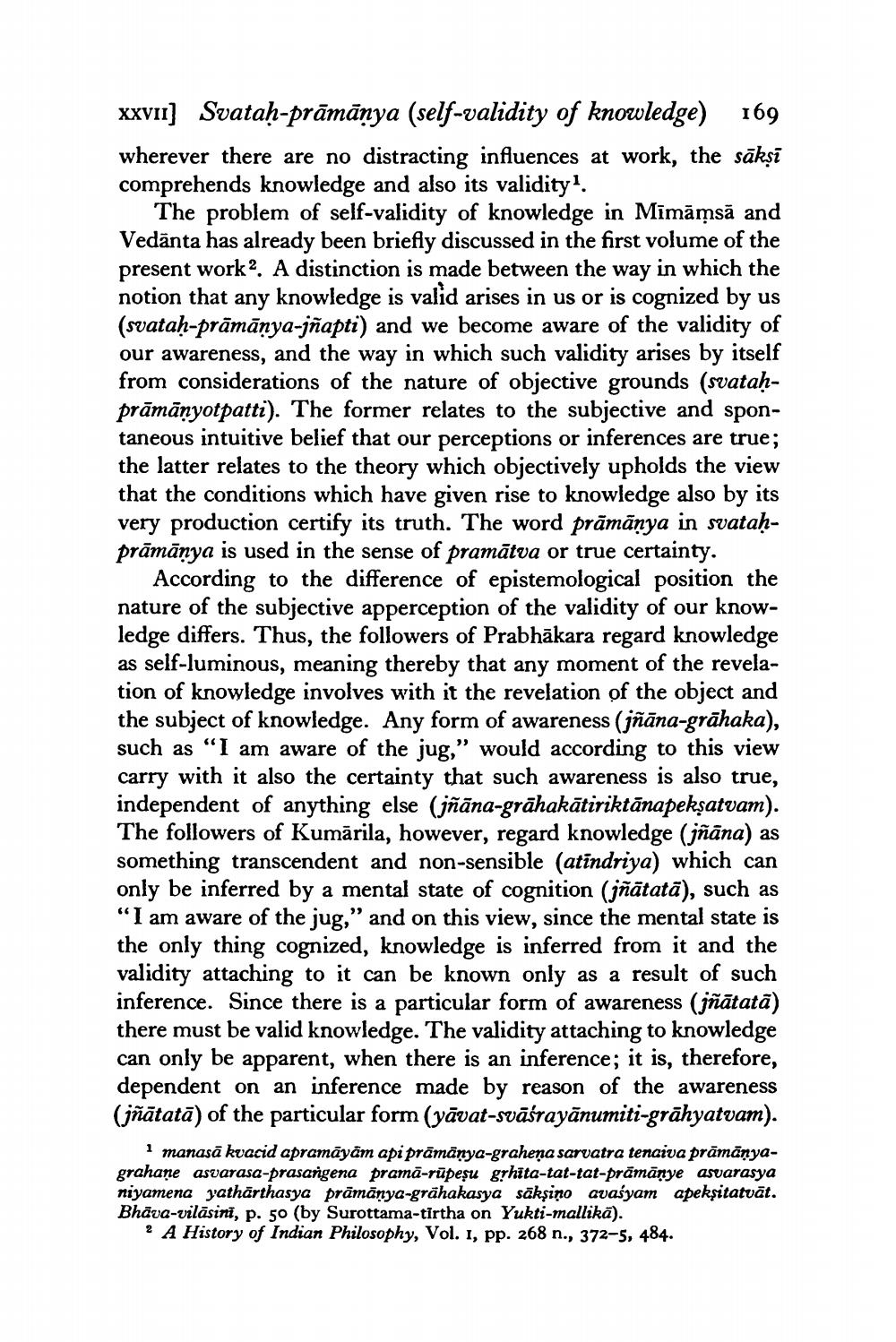________________
XXVII] Svataḥ-prāmānya (self-validity of knowledge) 169 wherever there are no distracting influences at work, the sākṣī comprehends knowledge and also its validity.
The problem of self-validity of knowledge in Mīmāmsā and Vedānta has already been briefly discussed in the first volume of the present work. A distinction is made between the way in which the notion that any knowledge is valid arises in us or is cognized by us (svatah-prāmānya-jñapti) and we become aware of the validity of our awareness, and the way in which such validity arises by itself from considerations of the nature of objective grounds (svatahprāmānyotpatti). The former relates to the subjective and spontaneous intuitive belief that our perceptions or inferences are true; the latter relates to the theory which objectively upholds the view that the conditions which have given rise to knowledge also by its very production certify its truth. The word prāmānya in svataḥprāmānya is used in the sense of pramātva or true certainty.
According to the difference of epistemological position the nature of the subjective apperception of the validity of our knowledge differs. Thus, the followers of Prabhākara regard knowledge as self-luminous, meaning thereby that any moment of the revelation of knowledge involves with it the revelation of the object and the subject of knowledge. Any form of awareness (jñāna-grāhaka), such as “I am aware of the jug," would according to this view carry with it also the certainty that such awareness is also true, independent of anything else (jñāna-grāhakātiriktānapekṣatvam). The followers of Kumārila, however, regard knowledge (jñāna) as something transcendent and non-sensible (atīndriya) which can only be inferred by a mental state of cognition (jñātatā), such as "I am aware of the jug," and on this view, since the mental state is the only thing cognized, knowledge is inferred from it and the validity attaching to it can be known only as a result of such inference. Since there is a particular form of awareness (jñātatā) there must be valid knowledge. The validity attaching to knowledge can only be apparent, when there is an inference; it is, therefore, dependent on an inference made by reason of the awareness (jñātatā) of the particular form (yāvat-svāśrayānumiti-grāhyatvam).
1 manasā kvacid apramāyām api prāmänya-grahena sarvatra tenaiva prāmanyagrahane asvarasa-prasangena pramā-rūpesu grhita-tat-tat-prāmānye asvarasya niyamena yathārthasya prāmānya-grāhakasya sāksino avasyam apeksitatvāt. Bhava-vilāsini, p. 50 (by Surottama-tirtha on Yukti-mallikā).
2 A History of Indian Philosophy, Vol. 1, pp. 268 n., 372-5, 484.




